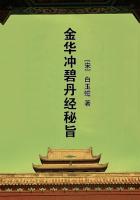In the Saxon quarter, certain Austrian regiments of horse would not charge at all; merely kept firing from their carbines, and when the time came ran.
As for the Saxons, they have been beaten these two hours; that is to say, hopeless these two hours, and getting beaten worse and worse. The Saxons cannot stand, but neither generally will they run; they dispute every ditch, morass and tuft of wood, especially every village. Wrecks of the muddy desperate business last, hour after hour. "I gave my men a little rest under the garden walls,"says one Saxon Gentleman, "or they would have died, in the heat and thirst and extreme fatigue: I would have given 100 gulden [10 pounds Sterling] for a glass of water." [<italic> Helden-Geschichte, <end italic> ubi supra.] The Prussians push them on, bayonet in back; inexorable, not to be resisted; slit off whole battalions of them (prisoners now, and quarter given); take all their guns, or all that are not sunk in the quagmires;--in fine, drive them, part into the Mountains direct, part by circuit thither, down upon the rear of the Austrian fight: through Hausdorf, Seifersdorf and other Mountain gorges, where we hear no more of them, and shall say no more of them. A sore stroke for poor old Weissenfels; the last public one he has to take, in this world, for the poor man died before long. Nobody's blame, he says;every Saxon man did well; only some Austrian horse-regiments, that we had among us, were too shy. Adieu to poor old Weissenfels.
Luck of war, what else,--thereby is he in this pass.
And now new Prussian force, its Saxons being well abolished, is pressing down upon Prince Karl's naked left flank. Yes;--Prince Karl too will have to go. His cavalry is, for most part, shaken into ragged clouds; infantry, steady enough men, cannot stand everything. "I have observed," says Friedrich, "if you step sharply up to an Austrian battalion [within fifty paces or so], and pour in your fire well, in about a quarter of an hour you see the ranks beginning to shake, and jumble towards indistinctness;"[<italic> Military Instructions. <end italic>] a very hopeful symptom to you!
It was at this moment that Lieutenant-General Gessler, under whom is the Dragoon regiment Baireuth, who had kept his place in spite of Valori's message, determined on a thing,--advised to it by General Schmettau (younger Schmettau), who was near. Gessler, as we saw, stood in the rear line, behind that gap (most likely one of several gaps, or wide spaces, left too wide, as we explained);Gessler, noticing the jumbly condition of those Austrian battalions, heaped now one upon another in this part,--motions to the Prussian Infantry to make what farther room is needful;then dashes through, in two columns (self and the Dragoon-Colonel heading the one, French Chasot, who is Lieutenant-Colonel, heading the other), sabre in hand, with extraordinary impetus and fire, into the belly of these jumbly Austrians; and slashes them to rags, "twenty battalions of them," in an altogether unexampled manner.
Takes "several thousand prisoners," and such a haul of standards, kettle-drums and insignia of honor, as was never got before at one charge. Sixty-seven standards by the tale, for the regiment (by most All-Gracious Permission) wears, ever after, "67" upon its cartridge-box, and is allowed to beat the grenadier march;[Orlich, ii. 179 (173 n., 179 n., slightly wrong); <italic>
Militair-Lexikon, <end italic> ii. 9, iv. 465, 468. See Preuss, i. 212; <italic> OEuvres de Frederic; <end italic> &c. &c.]--how many kettle-drums memory does not say.
Prince Karl beats retreat, about 8 in the morning; is through Hohenfriedberg about 10 (cannon covering there, and Nadasti as rear-guard): back into the Mountains; a thoroughly well-beaten man.
Towards Bolkenhayn, the Saxons and he; their heavy artillery and baggage had been left safe there. Not much pursued, and gradually rearranging himself; with thoughts,--no want of thoughts!
Came pouring down, triumphantly invasive, yesterday; returns, on these terms, in about fifteen hours. Not marching with displayed banners and field-music, this time; this is a far other march.
The mouse-trap had been left open, and we rashly went in!--Prince Karl's loss, including that of the Saxons (which is almost equal, though their number in the field was but HALF), is 9,000 dead and wounded, 7,000 prisoners, 66 cannon, 73 flags and standards;the Prussian is about 5,000 dead and wounded. [In Orlich (ii. 182)all the details.] Friedrich, at sight of Valori, embraces his GROSVALORI; says, with a pious emotion in voice and look, "My friend, God has helped me wonderfully this day!" Actually there was a kind of devout feeling visible in him, thinks Valori: "A singular mixture, this Prince, of good qualities and of bad; I never know which preponderates." [Valori, SOEPIUS.] As is the way with fat Valoris, when they come into such company.
Friedrich is blamed by some military men, and perhaps himself thought it questionable, that he did not pursue Prince Karl more sharply. He says his troops could not; they were worn out with the night's marching and the day's fighting. He himself may well be worn out. I suppose, for the last four-and-twenty hours he, of all the contemporary sons of Adam, has probably been the busiest.
Let us rest this day; rest till to-morrow morning, and be thankful.
"So decisive a defeat," writes he to his Mother (hastily, misdating "6th" June for 4th), "has not been since Blenheim" [Letter in <italic> OEuvres de Frederic, <end italic> xxvi. 71.] (which is tolerably true); and "I have made the Princes sign their names," to give the good Mother assurance of her children in these perils of war. Seldom has such a deliverance come to a man.
Chapter XI.
CAMP OF CHLUM: FRIEDRICH CANNOT ACHIEVE PEACE.















